
Professorial Research Fellow
University of Melbourne
Professor Ross Garnaut AO is a Professorial Research Fellow in the Economics at the University of Melbourne. Earlier in the Australian National University he was Distinguished Professor of Economics (2007 – 2013) and before that longstanding Head of the Division of Economics in the Research School of Pacific and Asian Studies.
He has been awarded the degrees honoris causa of Doctor of Letters from the Australian National University and Doctor of Science from the University of Sydney. He is an Honorary Professor of the Chinese Academy of Social Sciences and Renmin University, a Fellow of the Australian Academy of Social Sciences, a Distinguished Fellow of the Australian Economics Society and a Distinguished Life Member of the Australian Agriculture and Resource Economics Society.
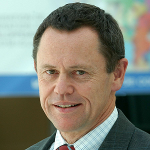
Environment Director, Organisation for Economic Co-operation and Development (OECD)
Simon Upton is the Environment Director at the Organisation for Economic Cooperation & Development (OECD). The Environment Directorate is responsible for Environmental Performance Reviews of Member Countries, the economic analysis of policy instruments used to improve environmental outcomes and a wide range of work related to water, biodiversity, climate and chemicals. He has played a key role in the development of the OECD’s Green Growth Strategy.
Mr Upton is a New Zealander and former Member of Parliament. He held a variety of ministerial offices between 1990 – 1999, notably the Environment and Research, Science & Technology portfolios. He chaired the UN Commission on Sustainable Development in 1999. He chaired the Round Table on Sustainable Development at the OECD between 1998 and 2014, and became Environment Director at the OECD in 2010.
He holds a BA and LLB(Hons) degrees from the University of Auckland, New Zealand, and an M.Litt from the University of Oxford. He is a Rhodes Scholar and Privy Councillor.

Farmer and CSIRO, Australia
Nitrogen balance in Australian farmlands
John now farms crops and livestock following a distinguished career with CSIRO Plant Industry in Canberra. He has conducted research on the optimum supply of nitrogen to cereals, the effects of crop sequence on performance and developing decision support tools for crop nutrient management. While at CSIRO he was a visiting scientist at the International Rice Research Institute in the Philippines and at the Swedish University of Agricultural Sciences in Uppsala and Ume.

Institute of Soil Science, Chinese Academy of Sciences
Nitrogen cycling and its environmental impacts on terrestial ecosystems in China
Xiaoyuan Yan is Professor of the Institute of Soil Science, Chinese Academy of Sciences, where he has been since 2006.
Professor Xiaoyuan Yan has had roles as the Director of East Asia Center, the International Nitrogen Initiative (INI); Member of the editorial board of Soil Science and Plant Nutrition; Member of the Technical Committee on Soil Systems and Critical Zone Processes, American Geophysical Union; and as contributing author of 2006 IPCC Guidelines for National Greenhouse Gas Inventories.
Professor Xiaoyuan Yan received his PhD in Agricultural science from Chinese Academy of Sciences in 1998. During 1999-2006, he was a research scientist at the International Research Center for Agricultural Sciences and Frontier Research Center for Global Change in Japan.
Professor Xiaoyuan Yan’s research focuses are nitrogen biogeochemistry, greenhouse gas emission from agriculture and non-point source pollution control.

China Agricultural University, China
Nitrogen cycling and its environmental impacts on terrestial ecosystems in China
Prof. Dr LIU Xuejun is a Distinguished Professor at China Agricultural University. He is an editorial board member of Journal of Arid Land and the agricultural expert of China-EU Science and Technology Innovation Dialogue. He has developed wide cooperation with scientists from Germany, UK, the Netherlands, USA and some international organizations (e.g. Global Partnership on Nutrient Management).
Prof. Liu’s current research focuses on atmospheric nitrogen (N) deposition and N cycling in particular on N source, fate and their impacts on soil acidification, eutrophication and greenhouse gas emission in major Chinese croplands and grasslands. He has established a Nationwide Nitrogen Deposition Monitoring Network (NNDMN) across China and provided a platform on both wet and dry N deposition fluxes in China. His broad interests are to reveal the relationship among air pollution, N deposition and N biogeochemical cycles as well as their impacts on ecosystem and human being’s health.

Director & Chief Executive
Rothamsted Research, Harpenden, Herts, UK
Looking forward to 2030: Nitrogen and Global Sustainability Goals
Professor Dobermann is the Director & Chief Executive Rothamsted Research. In this role he provides leadership for a wide range of research programs that aim to develop new solutions for the sustainable intensification of agricultural systems.
Dr Dobermann has over 30 years of field research experience from all world regions. In 1992 he joined the International Rice Research Institute (IRRI) as a soil scientist, followed by an appointment as Professor at the University of Nebraska-Lincoln from 2000 to 2007. From 2008 to 2014 he served as Deputy Director General for Research at IRRI in the Philippines, where he also led the development of Global Rice Science Partnership (GRiSP).
Dr Dobermann is an Editor of the international journal Global Food Security. As a member of the Leadership Council of he Sustainable Development Solutions Network (SDSN, unsdsn.org) Professor Dobermann is widely engaged in implementing the post-2015 global sustainable development agenda.

University of Virginia, United States of America
Nitrogen: The historical progression from ignorance to knowledge, with a view to future solutions
Professor James Galloway is a biogeochemist whose research over the last twenty years has focused on human alteration of the nitrogen cycle. He was the founding chair of the International Nitrogen Initiative and is currently working on developing nitrogen footprint models at a variety of scales.

Soil Scientist, Institute of Tropical Agriculture (IITA)
Nitrogen management for future food security: Sub-Saharan African case-study
Dr Cargele Masso is a soil scientist working for the International Institute of Tropical Agriculture (IITA) in the area of quality control of fertilizers and supplements including bio-fertilizers. Since 2012, he has lead a project on the institutionalization of quality control and scaling up profitable bio-fertilizer and bio-pesticide technologies in sub-Saharan Africa.
Dr Masso is also the Director of the Africa Regional Centre of the International Nitrogen Initiative, which has a particular focus on biological nitrogen fixation.
Before joining IITA, Dr Cargele worked in Canada as a regulatory officer in the Fertilizer Section of the Canadian Food Inspection Agency and post-doctoral fellow at the Agriculture and Agri-Food Canada.
Dr Cargele’s scientific publications, mainly under his former name (Dr Nduwamungu), are in the area of soil analysis, soil improvement, (bio)fertilizer quality, and sustainable agriculture intensification.

Principal Scientist & Science Impact Leader, AgResearch
Cecile is an internationally recognised expert on N cycling and nitrous oxide emissions from pastoral soils. She is a Principal Scientist and a Science Impact Leader with AgResearch. She is also a Principal Investigator of the NZ Agricultural Greenhouse Gas Centre, where she co-leads the nitrous oxide mitigation research programme. In her role as Chair of the national nitrous oxide research network, NzOnet, Cecile works closely with the Ministry for Primary Industries to coordinate and conduct N2O research programmes to improve New Zealand’s N2O inventory methodology.
Her current research interests include ‘nitrogen cycling in future farming systems’ and ‘developing adaptive capacity for New Zealand pastoral farmers to respond to future perturbations’. In her role as AgResearch’s “Science Impact Leader – Climate change mitigation and adaptation”, Cecile coordinates cross-team research projects in this research area, to deliver the best possible impacts and outcomes for the New Zealand pastoral sector. In recent years, Cecile a research programme, jointly funded by the NZ government and pastoral industry partners, aimed at developing pastoral systems for lifting farm profit and productivity while reducing environmental footprints.

Nutrient Management and Soil Fertility, Wageningen University
Animal production and Nitrogen: Global trends in growth and efficiency
Oene Oenema (1953) has Bsc in Agronomy, MSc in Soil Science and Plant Nutrition and PhD in Marine Geochemistry. He is professor in Nutrient Management and Soil Fertility at Wageningen University and project leader at Alterra. His research interest are in nutrient cycling and management in agro-ecosystems. From 2003, he is chair of the scientific committee on the nutrient management policy in The Netherlands, and from 2014 chair of the EU Nitrogen Expert Panel. He is also visiting professor at the Chinese Academy of Sciences. He likes cycling.
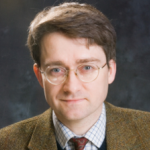
Natural Environment Research Council (NERC), Centre for Ecology and Hydrology (CEH)
Future policy directions for improving nitrogen management
Prof. Sutton’s interests focus on the emission, atmospheric transfer of atmospheric reactive nitrogen compounds, especially ammonia, including the interactions between air pollution, greenhouse gas balance and eutrophication. He is engaged in developing a multi-pollutant approach for nitrogen, with special attention to the fate of emissions from agriculture.
Prof. Sutton is Chair of the International Nitrogen Initiative (INI) of IGBP / SCOPE, and Co-Chair of the UNECE Task Force on Reactive Nitrogen (a body under the Geneva Convention on Long-range Transboundary Air Pollution). He was coordinator of the EU NitroEurope Integrated Project and led the European Nitrogen Assessment (ENA). He is currently coordinator of the EU ÉCLAIRE project, which addresses how climate change will alter air pollution threats to European ecosystems.
Prof. Sutton is a member of the Steering Group of the Global Partnership on Nutrient Management (GPNM) and is currently leading preparations for a future ‘International Nitrogen Management System’ (INMS) together with the United Nations Environment Programme (UNEP).
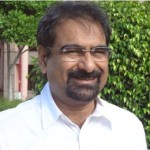
Principal Scientist, IRRI
J.K. Ladha is currently a Principal Scientist. He is also an adjunct Senior Research Scientist in the Columbia University and associate in the Ag Station at the UC-Davis. He has devoted more than 30 years to aspects of sustainable management of agriculture and natural resources for increasing food security and environmental quality. Dr Ladha provided leadership to the Rice-Wheat Consortium (RWC) and the Cereal System Initiative for South Asia (CSISA).
Dr Ladha’s work, in collaboration with many national partners, takes a holistic, systems approach, covering various components of agronomic, soil, nutrient and water management. Through his work, several integrated crop and resource management technologies have been adopted on a large scale helping resource-poor farmers. Dr Ladha’s leadership has been instrumental in bringing closer collaboration among several international centers and national agricultural research and extension systems, and private sector in South Asia.
Dr Ladha has published widely on issues related to sustainable and conservation agriculture. He served on the editorial boards of several international journals including the Regional Editor of Biology and Fertility of Soils.

Queensland University of Technology, Australia
Nitrogen balance in Australian farmlands
Peter is the coordinator of the Australia national nitrous oxide (in agriculture) research program, a $50M network of automated sampling sites funded by the Department of Agriculture and managed by the Grains Research and Development Corporation. He represents Australia in the Global Research Alliance for Agricultural Greenhouse Gases Croplands and Soil C/N Crosscutting issues Working Groups. He holds adjunct positions at Michigan State University and Columbia University..

Nitrogen Program Director for the International Plant Nutrition Institute (IPNI)
Dr. Clifford S. (Cliff) Snyder is the Nitrogen Program Director for the International Plant Nutrition Institute (IPNI), and is based in Conway, Arkansas, USA. His responsibilities include coordinating efforts of the Institute dealing with environmental issues related to nitrogen fertilizer use in agriculture, in North America and internationally.
Dr. Snyder was appointed to the U.S. Environmental Protection Agency (EPA) Science Advisory Board Hypoxia Advisory Panel in August 2006 and involved in producing a 2008 report titled “Hypoxia in the Northern Gulf of Mexico.” In March 2008, he was appointed to the U.S. EPA Farm, Ranch and Rural Communities Advisory Committee. He is also an invited contributor to and reviewer of reports and scientific panels on greenhouse gas emissions from cropland agriculture within the U.S. Department of Agriculture and the U.S. EPA.
Dr. Snyder has provided scientific and technical advice on greenhouse gas emissions, water quality, soil organic carbon, and nutrient management to the Field to Market Sustainability Alliance and other organizations. He is a member of the Science Advisory Committee of the International Nitrogen Initiative, and an invited member of the United Nations Environment Program Steering Committee addressing global nitrous oxide emissions.
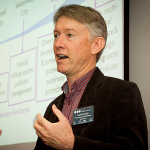
Professor & Head of School of Agricultural and Resource Economics
Director, Centre for Environmental Economics and Policy
University of Western Australia
David.Pannell@uwa.edu.au
David Pannell is Professor and Head of School of Agricultural and Resource Economics, University of Western Australia; Director, Centre for Environmental Economics and Policy; ARC Federation Fellow (2007-2012); Distinguished Fellow and past president of the Australian Agricultural and Resource Economics Society; Fellow of the Academy of Social Sciences in Australia; and a Director of Natural Decisions Pty Ltd.
He has been an active commentator on environmental policy within Australia, arguing for policies that better reflect scientific, economic and social realities. He was a Director on the Board of Land and Water Australia 2002-05. His research includes the economics of land and water conservation; environmental policy; farmer adoption of new practices; risk; and economics of farming systems.
His research has been published in seven books and 200 journal articles and book chapters, and has been recognised with awards from the USA, Australia, Canada and the UK, including the 2009 ARC Eureka Prize for Interdisciplinary Research.

Chair in Tropical Agronomy at University of Queensland
Tracking nitrogen from the paddock to the reef – a case study from the Great Barrier Reef
Professor Mike Bell holds a position of Chair in Tropical Agronomy at UQ Gatton Campus, jointly supported by QAAFI and the School of Agriculture and Food Science.
He obtained undergraduate and Masters qualifications from the University of Qld and his PhD from the University of Guelph, Ontario, Canada. He leads regional and national research programs in the fields of farming systems, crop nutrition and soil and land management in tropical and subtropical agricultural systems in Australia and SE Asia. This work includes developing strategies for improving Nitrogen Use Efficiency and reducing offsite N losses in the Australian sugar industry.
He leads regional and national research programs in the fields of farming systems and soil and land management in tropical and subtropical agricultural systems in Australia. He also has considerable research experience with agronomy and farming systems issues in SE Asia, having led or participated in a variety of Australian aid projects funded by ACIAR.

Research Program Leader, Australian Institute of Marine Science (AIMS)
Tracking nitrogen from the paddock to the reef – a case study from the Great Barrier Reef
Dr Britta Schaffelke’s expertise is the research and management of environmental impacts in tropical marine ecosystems, especially those related to deteriorating water quality, including nutrient enrichment.
For the past 20 years her research has focused on the Great Barrier Reef. After migrating from Germany to Australia in 1995 for post-doctoral research, Britta held a variety of positions spanning marine ecological research, environmental management and knowledge exchange. She joined AIMS in 2005 and currently leads the 30+ staff strong AIMS Research Program ‘A Healthy and Sustainable Great Barrier Reef’, focusing on assessing condition and trends of GBR coral reefs, and understanding their vulnerability to climate change and ocean acidification, especially in interaction with local and regional environmental pressures.
Britta is serving on a variety of expert committees to advise decision makers on how to address the water quality problems facing the GBR, including the Federal Government Reef 2050 Independent Expert Panel and the Queensland Government Water Science Taskforce.

Senior Research Scholar, International Institute for Applied Systems Analysis (IIASA), Laxenburg, Austria
Nitrogen budgets – tools to validate information on nitrogen fluxes
Originally an atmospheric scientist, Wilfried Winiwarter joined IIASA in 2003 to assess current and potential future emissions of air pollutants and greenhouse gases, specifically of nitrous oxide and of ammonia in the GAINS model. This triggered his interest in investigating global biogeochemical cycles, focusing on the nitrogen cycle. Interactions between physical and social systems and their respective interferences now constitute a major focus of his work.
Before and parallel to his activities at IIASA, Wilfried worked at Austria’s largest non-university research center, now known as Austrian Institute of Technology, and as Professor of systems science at the University of Graz.
Dr Winiwarter serves as a Deputy Chairman to the Climate and Air Quality Commission of the Austrian Academy of Sciences. He also chairs the Expert Panel on Nitrogen Budgets operating under the UNECE Convention on Long-Range Transboundary Air Pollution, and since 2013 he is the Director of the European Centre of the International Nitrogen Initiative.
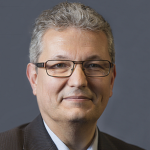
Senior Director, Agriculture Service, International Fertilizer Association (IFA),
Paris, France
Global nitrogen fertiliser demand and supply: trend, current level and outlook
Patrick Heffer joined the International Fertilizer Association (IFA) in 2002, where he is Senior Director of the Agriculture Service. In this capacity, he coordinates IFA’s global activities that relate to fertilizer consumption. In addition, at the regional level, Patrick leads IFA’s Africa programme.
Before joining IFA, Patrick spent 15 years with the seed industry, including five years with the International Seed Federation, and two years with FAO’s Seed and Plant Genetic Resources Service.
Patrick is currently on the Steering Committee of the Global Partnership on Nutrient Management (GPMN) and on the Board of Trustees of the African Fertilizer and Agribusiness Partnership (AFAP).
